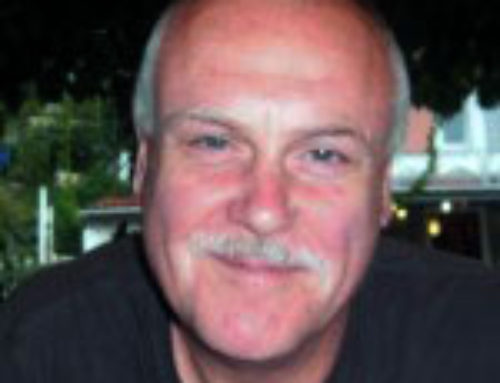| Tuesday , Jul 27, 1999 Sun-Thu at 18:00 (GMT+2) High Tech FeaturesBuy Them Before They Buy YouBy Mary Sagi-Maydan How does it feel to “buy” Efi Arazi, one of Israeli high tech’s founding fathers? I ask Terayon’s founder Shlomo Rakib the day following the announcement that Terayon bought Arazi’s Imedia for $100 million. Rakib, whose rags-to-riches story has been told innumerable times, replies that Imedia is a wonderful company with remarkable staff and technology. But what does it mean to you emotionally speaking? I insist. Rakib is not a man to display his emotions. His answers are always correct, dignified, respectable. “Clearly it’s a great honor,” he finally pronounces. “After all, Arazi is indeed the grandfather of Israeli high tech.” Brothers Shlomo and Zaki Rakib are believed to be worth more than $100 million each. Their modest beginnings have been much reported. They graduated from high school at age 16 and went on to university. Shlomo studied electric engineering, and Zaki did a PhD in mechanical engineering and post-doctorate studies in applies mathematics. He taught for a while at Tel Aviv University’s computer science faculty, and then joined Helios. After Helios was sold to US company Cadence, Zaki moved to the US, and urged his brother to join him and set up a company. This is how Terayon, a maker of modems for high-speed Internet communications over cable, came into being. Terayon held an IPO in August 1998, and its market value has already crossed the $1 billion mark. When I ask Shlomo where he would like to be in five years’ time, he replies that he’d like to become a 3Com. “In all respects, except for the share price,” he adds. “I’d like to be as solidly based and as decentralized as 3Com, and I’d like recognition. I’d love to be a blue-chip company.” Such aspirations contrast with the prevailing trend in Israel, dubbed “the gold rush” by BackWeb founder Eli Barkat. Entrepreneurs can’t wait to sell and “run off” with the money. Do you find this trend disquieting? I ask. “I see a negative side to it,” he replies. “But I also see the positive side. I believe that entrepreneurs who sell off at an early stage will invest the money in something new. Israel’s objective is, naturally, the establishment of longer-surviving companies, but it’s perfectly all right to sell at an early stage. Some venture capital funds specialize in early selling. It takes a long time to build up a company. Sometimes the economy is stronger when there are a lot of small companies. Diversity is a hedge against risk. “I, for one, am in favor of judging each case on its own merits. Mirabilis, for instance, had an option to sell. They could have refused to sell and, perhaps, later face competition from AOL, which bought them. The Lord created Mirabilis, and the Lord will create others. I don’t know Yossi Vardi personally, but I tend to trust his judgment. Another example is Libit, which was sold to Texas Instruments. Libit considered all the alternatives and assessed the competition, and reached the conclusion that joining a big company would help it cope in the market place.” “Globes”: What do you think of the idea of imposing restrictions on the sale of companies in which the Chief Scientist’s Office has invested? Shlomo Rakib:I’m not familiar with the details, but, above all, I believe in a free economy. That’s the right way to do things. When the government invests, it should set commercial terms, such as receiving shares, so that if the company is sold, the government will also get some profit. By the same token, you can’t force people to stay in Israel. And anyway, I don’t see it as a brain drain, but as an excellent way for Israelis to learn how to do things. If engineers or entrepreneurs want to leave, you can’t keep them. The world’s free. If someone leaves, the State should offer him enough attractive reasons to come back.” Do you believe Israel will produce a Nokia? “Israel has ECI. Elbit is a large company. I believe one day Israel will produce a really big company. Not of Cisco’s size, but big. It takes maturity to run a company so that it gets really big. I believe it’ll come with time.” Of the tendency to sell companies at an early stage, Zaki says: “The Israeli high tech industry used to have the reputation of an industry prone to premature, and sometimes disappointing, IPOs . In the last few years, there has grown a better understanding in Israel of what a public company means. Some entrepreneurs who opt for selling recognize the fact that it’s very difficult for an Israel-based general manager to bring a company to a situation in which it’s visible enough. In Israel it’s difficult to get high valuations. A wonderful company such as ECI is traded at a market value of $2.5 billion, whereas a company such as RedBack, whose sales turnover is only $5 million, already has a market value of $3 billion. “This combines with various personal considerations. The liquidity of a listed company is limited. You can’t make a fast couple of million, because if you sell too many shares, you’ll drive the share value down. A merger, on the other hand, gives you a lot of money right away. And as far as the company is concerned, there’s the advantage of obtaining marketing and sales infrastructure. “Life in a public company is very difficult. I live in the Valley, not in Israel, and I still have to spend seven months a year away from home (the interview with Zaki was held on the telephone, with Zaki calling from Japan -MSM). I have to spend at least three months a year with investors, which is necessary if you want a higher market value that will enable the company to make investments and progress. I opted for expanding the company, because it suits me. I’ve always dreamt about it. To make a change. To bow out of business leaving something that will be remembered. I don’t underestimate the remarkable capacity of some people to sell off their company, but I find it hard to believe that the name of Libit will mean anything to anyone five years from now. I want Terayon to be remembered. We’re competing with giants like AT&T, and it’s important to me that people will say that David overcame Goliath.” When you first came to the US, did you dream of success on this scale? Zaki Rakib:“I refuse to call it a success. Thank you for the complement, but I’m paranoid. It’s very premature to call it a success. As for my aspirations, I have believed we would succeed since I was very young. My father was an electrical engineer in Egypt, and he had a contracting company. From early childhood, Shlomo and I were interested in the technical side of things. We used to take things apart and put them together again. I remember that, when I was seven, I told Shlomo we would build a company together. I said, ‘I’ll be the general manager, and you’ll report to me.’ And it all came true.” It was the urge to strike it big that prompted Zaki to try his luck in the US. “I left because at that time the atmosphere in Israel didn’t make it possible for young people to make a breakthrough. That’s why I take of my hat to all the Israeli high tech industry,” Zaki says. “It’s difficult enough to set up a company and make it a success in the US, but it’s even more difficult in Israel, because you’re far from the sources, far from the market. There’s a smartness surplus in Israel. I’m not saying it in any negative sense. It’s simply a fact. Everybody’s smart. Everybody thinks: ‘Who are you to be general manager?’” Like his brother, Shlomo has profound respect for Israel’s top high tech people. “The brothers Zisappel, for instance, have left their mark everywhere, cultivating start-up companies. I also have deep respect for Uzia Galil, for Shimon Peres, who set up Tadiran and other electronic companies, for the BIRD fund, Dan Tolkowski, and Ed Mlavsky. DSSP’s Davidi Gilo has set up some very successful companies.” “Is money still a driving force for you?” I ask. “Money,” replies Zaki, “gives a sense of power. But what’s more important, money is a gauge. Your quality of life will be the same at $10 million and at $100 million, but money becomes a measure of your success. A good general manager must have criteria against which he can measure himself all the time. Comparison is also important. The industry has its heroes, and you look to them as role models. It’s important to be jealous. If you’re not jealous of another company or don’t envy another manager, it detracts from your urge to succeed. “One of the important things for institutional investors is to know that the general manager has an insatiable hunger to build up shareholder’s equity. If he’s not hungry, why should they be hungry to invest in him? As a shareholder in Terayon, it’s very important to me that the company’s value keeps growing. “My office overlooks the parking lot, which is full of sparkling brand-new cars. Many of our staff, including my sister, have bought houses and cars (Susan Fishel works in Terayon as a systems engineer. She joined late and doesn’t have holdings like her brothers; only options like the rest of the staff). It’s fantastic to know that I’ve touched the lives of so many people, and will continue to do so. Right after we bought Imedia, I told the staff: We bought Imedia for $100 million, and we’ll turn it into a billion-dollar company.” Published by Israel’s Business Arena July 26, 1999 |


